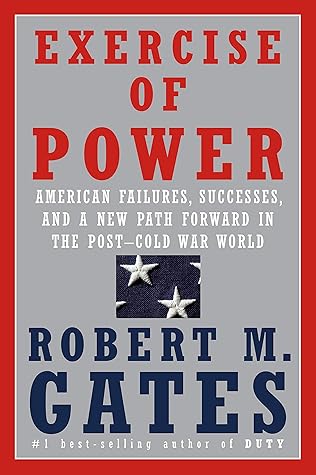More on this book
Kindle Notes & Highlights
Started reading
July 7, 2024
Presidents talk to family, golfing partners, friends, business associates, old pals in Congress, celebrities, journalists, and others, seeking their views. Sometimes they get really bizarre information and it can be tough to convince them that it’s really not true that Denmark wants to sell Greenland or that Noah’s Ark has shown up or that aliens (of the outer-space variety) are among us.
Because members, both Republicans and Democrats, cannot abide the thought of a single Defense program in their state or district being cut by a dollar, the department is also stuck with paying for a significant number of bases and facilities—probably 25 percent of the total—it neither wants nor needs.
The dismantling of USIA in the Clinton administration, the many disparate organizations with their own messaging capabilities—State, Defense, CIA, Treasury, the Agency for Global Media, and more—and the proliferation of new forms of communicating, from social media to cyber tools, have left us with massive capabilities and no way to mobilize them collectively for the exercise of power.
The bar for use of the U.S. military in a man-made humanitarian disaster abroad ought to be a high one. Because power misused is power lost.
Bush and Obama, their advisers, and the international community would have been well served had they heeded Machiavelli: “Men always commit the error of not knowing where to limit their hopes, and by trusting to these rather than to a just measure of their resources, they are generally ruined.”
More than a few Americans question the benefit to the United States of humanitarian assistance, such as PEPFAR, and diplomatic interventions to quell conflict in Africa. The idealist would argue that, for fellow human beings, these are the right and moral things to do. The realist would say that such actions help attack pandemics and extremism at the point of origin and keep both from our shores, foster relationships that open markets and opportunities for investment, and create potential allies for those times when U.S. interests require mobilizing international support.
We will shoot ourselves in the foot if we allow our partisan debates over immigration to curtail the flow of foreign students coming to U.S. universities and seeing firsthand what freedom looks like.


